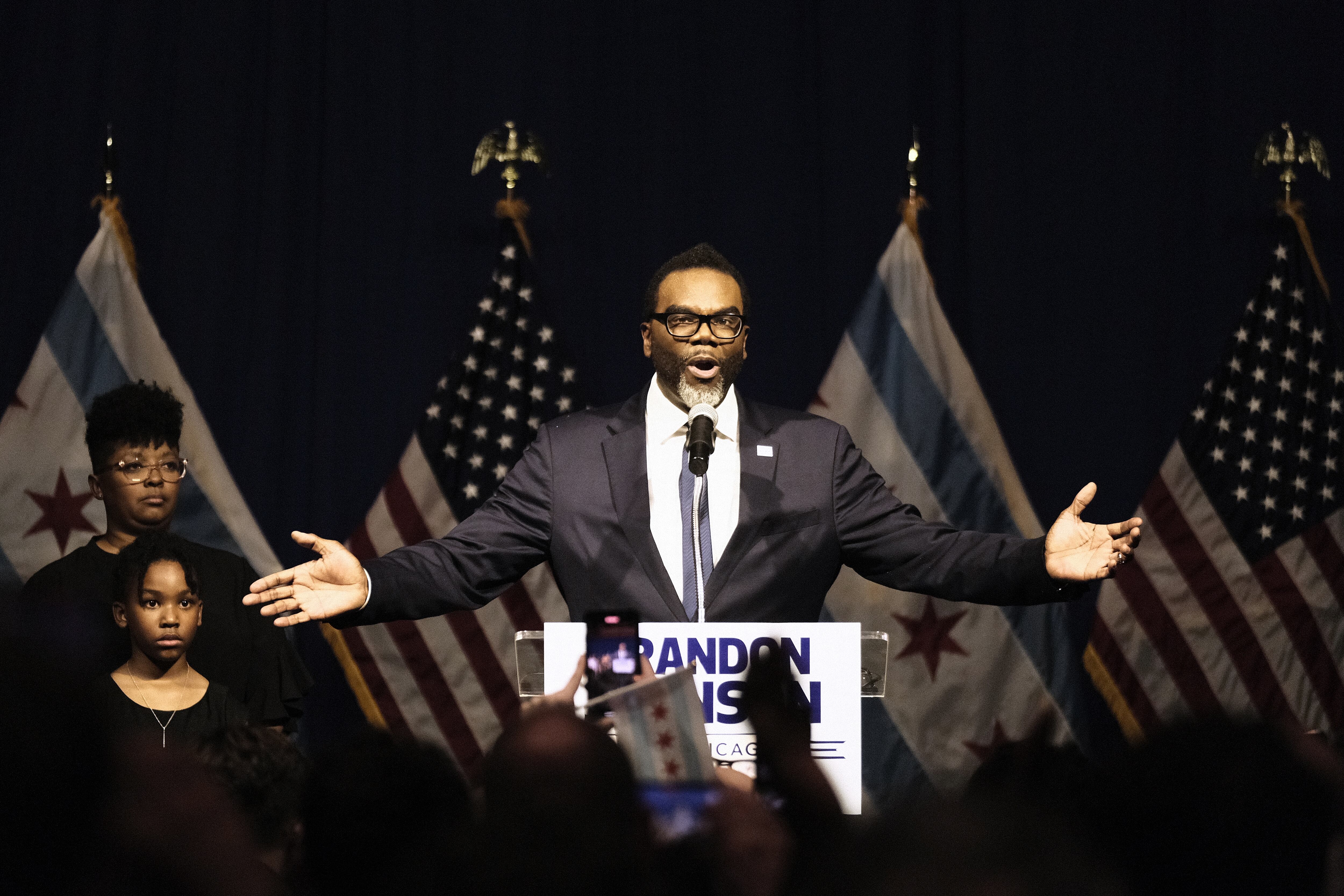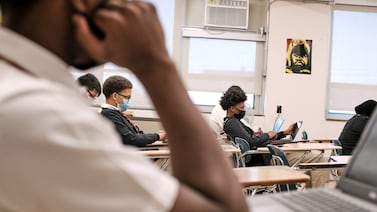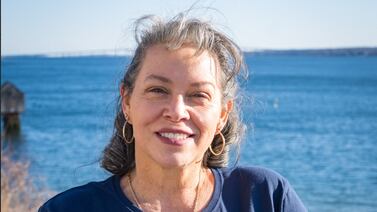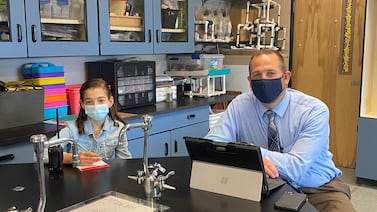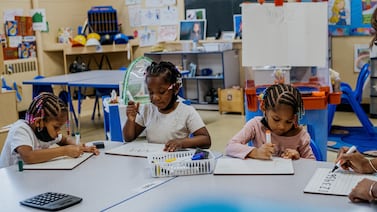Chalkbeat is a nonprofit news organization covering public education in communities across America. Sign up for our free Chicago newsletter to keep up with the city’s public school system and state education policy.
Brandon Johnson, a teachers union organizer, county commissioner, and former middle school teacher, will become Chicago’s next mayor after winning 51.4% of the vote to defeat former Chicago Public Schools CEO Paul Vallas in a runoff election.
Johnson’s win marks a stunning achievement in the grassroots movement started by Chicago Teachers Union leadership roughly a decade ago to focus on issues beyond the classroom, such as affordable housing, public health, environmental justice, and police reform.
“We have ushered in a new chapter in the history of our city,” Johnson said. “Whether you wake up early to open the doors of your businesses, or teach middle school, or wear a badge to protect our streets, or nurse patients in need, or provide child care services, you have always worked for this city. And now Chicago will begin to work for its people.”
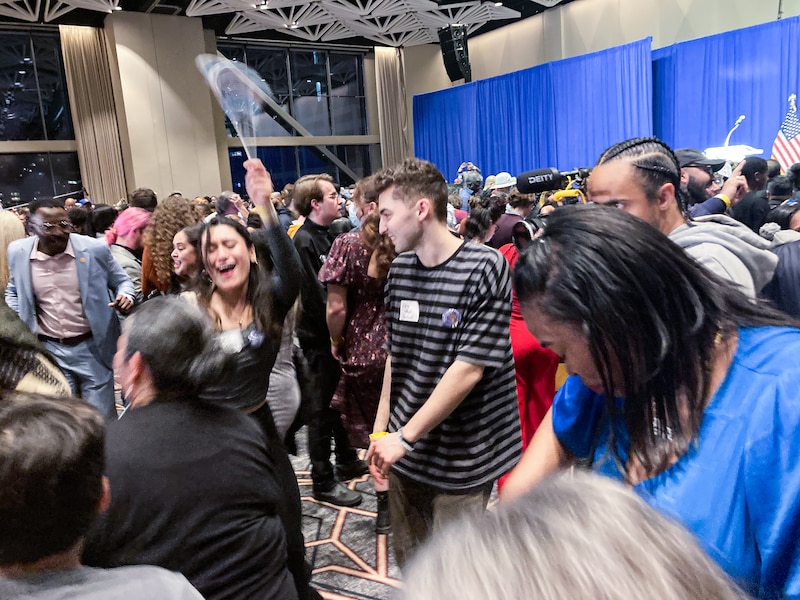
Bankrolled by the teachers union and other labor groups, Johnson broke through a field of nine candidates, securing about 21% of the vote, finishing second to Vallas, who captured 33% of the vote in the first round of voting on Feb. 28. Incumbent Mayor Lori Lightfoot finished third with 17% of the vote — dashing her hopes for a second term.
With 99% of precincts reporting, preliminary results posted by the Chicago Board of Elections had Johnson with 51.4% to Vallas’ 48.6%.
The two have spent the last five weeks knocking on doors, holding events, debating one another, visiting churches, and collecting endorsements in an effort to sway voters who may have picked another candidate or didn’t vote on Feb. 28. The narrow results illustrate how contentious and divisive the campaign had become and was a stark contrast to the Lightfoot’s runoff landslide in 2019.
“It’s clear based on the results tonight that the city is deeply divided,” Vallas said in a concession speech Tuesday night. “Even though, of course, we believe every vote should be counted, I called Brandon Johnson and told him that I absolutely expect him to be the next mayor of Chicago.”
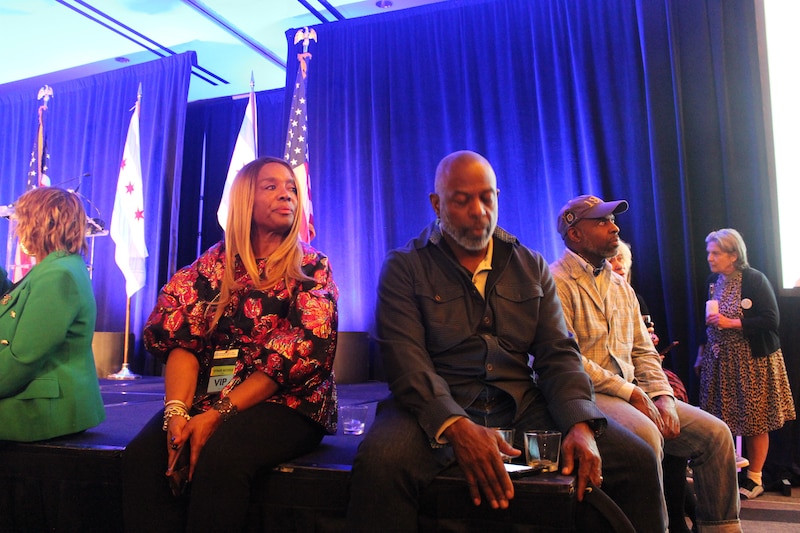
Johnson offered an olive branch to those who didn’t vote for him.
“To the Chicagoans who did not vote for me, here’s what I want you to know: that I care about you, I value you, and I want to hear from you. I want to work with you, and I’ll be the mayor for you too,” he said.
Both candidates’ deep ties to education propelled them into politics — though the two have been on opposite sides of the debates over public education policy in the past two decades and presented contrasting visions for the future of Chicago Public Schools.
Vallas, a torch bearer for school choice and charter schools who has supported voucher expansion, faced criticism and applause for his complicated schools’ legacy. Johnson taught at Jenner Academy of the Arts and Westinghouse College Prep before becoming a union organizer for the Chicago Teachers Union. His education platform, which aligns closely with the teachers union, promises more staff, free transit for students, and green schools.
Now, Johnson will be the last mayor to have control of the city’s public schools, a perhaps fitting irony for someone who advocated for an elected school board. He will oversee a number of challenges facing the nation’s fourth largest district including declining enrollment, closing pandemic-related academic declines, and the transition to an elected school board.
“On education, the contrast was clear,” said Randi Weingarten, president of the American Federation of Teachers, the parent union of the CTU. “Brandon wants to ensure parents have a say, teachers can teach, and students can learn without the intrusion of those who measure their success by closing schools rather than strengthening them.”
Former Chicago Teachers Union President Jesse Sharkey said Johnson’s victory is a vindication of the union’s massive organizing push over the past decade. He said members threw themselves into campaigning for Johnson in a big way, from knocking on doors to making art for his campaign materials.
“There was an outpouring of creativity and organizing in this election,” he said. “It turned out it was just enough.”
Throughout the campaign, Johnson has faced questions over whether he would be impartial in negotiations with his own union, to which he responded: “Who better to deliver bad news to friends than a friend?”
“Brandon is going to have to govern,” Sharkey said. “I don’t think the CTU gets to decide what it wants. Brandon is a remarkable person who has a lot of principles and deeply believes in governance.”
As Johnson took the lead, the crowd at his election night watch party at the Marriott Marquis downtown pumped their fists and cheered. The volume of the dance music went way up, and supporters danced, snapped selfies, and hugged.
Nina Hike, a science teacher at Westinghouse College Prep and a teachers union leader, said the ground game that the union built was crucial. Teachers turned out to volunteer and campaign for Johnson in full force, she said.
Hike estimated she spent hundreds of hours phone banking, knocking on more than 500 doors, recording a podcast attacking Vallas’ education record, and talking with news reporters.
Wallace Wilbourn Jr., a middle school social studies teacher at DePriest Elementary in Austin on Chicago’s West Side, knocked on doors for Johnson and hosted a canvassing event in his East Garfield Park living room. Early on election night, he was taking deep breaths as the two candidates remained neck-and-neck with razor-thin margins.
“The whole city has been working toward this one progressive goal,” Wilbourn said.
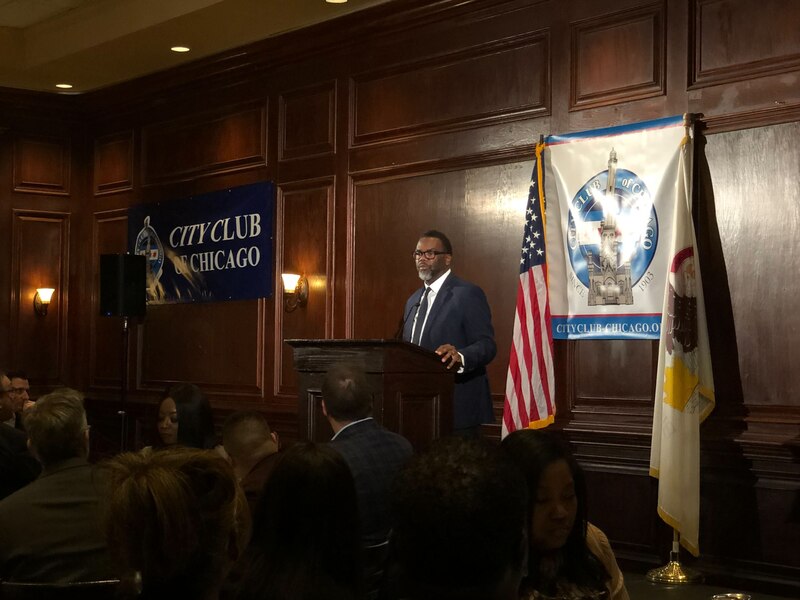
The CTU called Johnson a “protege” of the late former union president Karen Lewis, who almost ran for mayor herself in 2015 before being diagnosed with a brain tumor.
“You don’t have a Brandon Johnson without a Karen Lewis,” said CTU president Stacy Davis Gates said. “She transformed the political debate in our city. She showed Chicagoans how to stand up and demand what their schools and their city need and deserve. Tonight affirms Karen’s dream of a city that works for us all, not just a privileged few.”
At the Vallas election night party at the Hyatt Regency, his supporters held on to hope even as the results showed Johnson taking the lead. Joyce D. Kenner, former principal of Whitney Young Magnet High School who endorsed Vallas, said she did not expect the race to be so close.
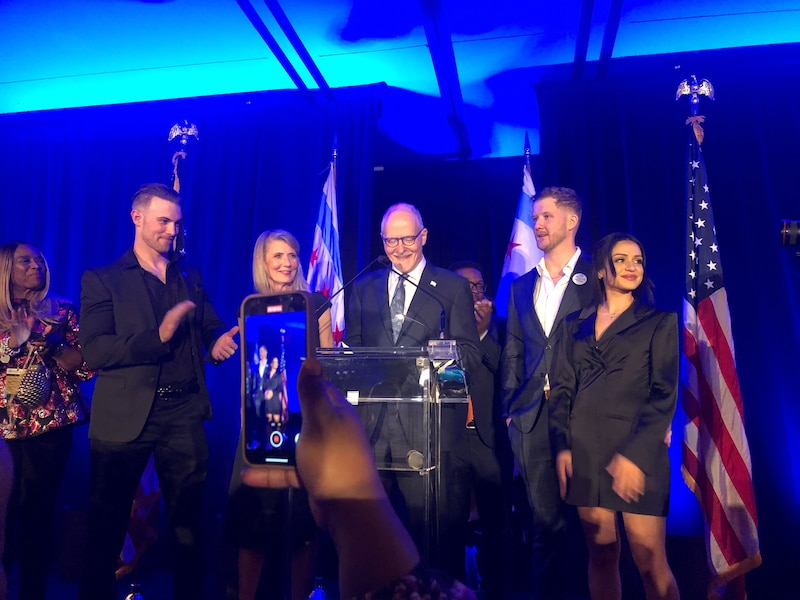
Beverly Miles, a former aldermanic candidate and Vallas supporter, said she was “expecting a landslide for Vallas.”
Miles said she thought Johnson was “a nice guy but I don’t think he’s the right guy.” Despite being a county commissioner, she felt he hadn’t done enough for the West Side.
“We knew it was going to be a nail-biter,” Ald. Tom Tunney said earlier in the night when only about 1,000 votes separated the two.
Chicago Board of Elections spokesperson Max Bever said earlier in the day there were still thousands of vote-by-mail ballots outstanding. The Chicago Board of Elections has until April 18 to count all ballots and certify the results.
The early voting and vote-by-mail numbers are double what they were in 2015 and 2019 and Monday’s early voting turnout set a municipal record, according to the Board. Turnout in the first round of voting on Feb. 28 was around 35%, with 566,973 people casting ballots out of roughly 1.6 million registered voters.
Mauricio Peña is a reporter for Chalkbeat Chicago, covering K-12 schools. Contact Mauricio at mpena@chalkbeat.org. Becky Vevea is the bureau chief for Chalkbeat Chicago. Contact Becky at bvevea@chalkbeat.org. Mila Koumpilova is Chalkbeat Chicago’s senior reporter covering Chicago Public Schools. Contact Mila at mkoumpilova@chalkbeat.org.


